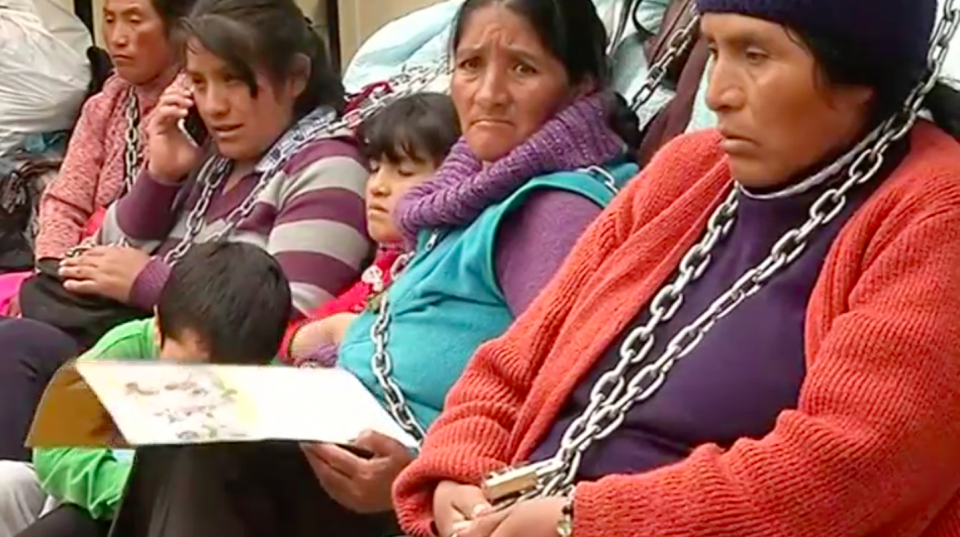
LIMA, Peru (Reuters) – Parents of sick children who live near one of Peru’s oldest mining sites camped out in front of the health ministry in Lima for the eight day on Thursday (June 22) to demand help treating the impacts of mining pollution.
Dozens of residents of Simon Bolivar, a district in the city of Cerro de Pasco in Peru’s central Andes, travelled to the capital Lima last week to demand the government declare a health emergency in the region and build a hospital that specializes in exposure to heavy metals.
Sarita Custodio pointed to rashes on her daughter’s face as she sat chained to the entrance of the health ministry with other parents. “I have already taken (my daughter) to the doctor and they told me it is due to lead.”
Lead, zinc, silver and other metals were mined at Cerro de Pasco for more than 400 years, leaving behind piles of tailings and traces of contaminants in the soil and water that many blame for ailments ranging from cancer to learning disabilities.
Simon Bolivar Mayor Zumel Trujillo has said there were more than 25 contaminated sites in his district alone.
More than 40 percent of children in the area who were tested in a 2012 study had dangerously high levels of lead in their blood, according to a screening of some 2,700 children by regional health authorities.
Peruvian miner Volcan Compania Minera, one of Peru’s biggest lead and zinc producers, said the last mining operation at Cerro de Pasco closed in 2015 but that it still processes stockpiles.
Volcan said most of the region’s pollution dates from decades prior to the start of its operations and that its current activities meet Peru’s environmental standards.
Protesters urged President Pedro Pablo Kuczynski to make good on his campaign pledge to modernize Peru by ensuring basic services such as health care are available to all.
The health ministry said it would emit a decree declaring a health emergency in Cerro de Pasco soon and allocate a short-term budget of about $400,000 to help the sick.
Luis Palma, a construction worker from Cerro de Pasco, said all four of his children had lead levels nine times recommended limits when they were tested a decade ago.
Palma said his son died a few years ago of stomach problems that he blames on the pollution, and one of his daughters is so mentally disabled she cannot feed herself.
“This is killing us slowly,” said Palma.








